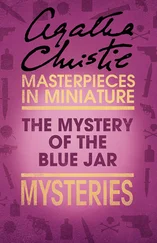I thought they were talking about a newspaper that related the story. Prompted by curiosity, I foolishly gave up my place in the queue so as to get a closer look. Other dupes did the same. We then discovered what all the fuss was about, the object clearly spoke for itself.
SPEND APPROXIMATELY A minute looking closely at the three white dots at the center of the print. Then turn your gaze to a wall or even lift your eyes toward the sky, and if you look hard enough you will see His Majesty the Sultan.

All of the effigies sold out in the blink of an eye. I managed to secure one and immediately set myself to the task. The results were undeniable. Lifting my eyes to the sky, I was certain that the image I’d had so much trouble discerning the previous night exactly matched the descriptions of the face that the others had convinced me had been there all along. Any lingering doubts I might have entertained were definitely brushed aside. The scientific approach I had acquired at school had been useful after all. As far as I was concerned, Ben Youssef’s appearance on the moon was now a proven fact.
ABSORBED BY THESE scholarly experiments, I found myself pushed to the back of the queue and was obliged to cool my heels, while I was increasingly tortured by the enticing smell and sight of the crispy fritters that the vendor was stacking one after the other on a bunch of palm fronds that had been tied together.
Once back at the house, of the two trophies I was brandishing, the most popular by far — against my expectations — were the fritters. The familial atmosphere had cooled down. The adults thought only of stuffing themselves. Only my little sisters deigned to dart a glance at what I deemed the biggest prize, and out of sheer goodwill they consented to take part in the experiment, whose clear results had turned me into a believer.
The conversation that took place after the meal clarified why the family mood had shifted. I was stunned to learn that the radio, which they had tuned into early in the morning, hadn’t breathed a word about the miracle that the whole of Fez had witnessed the previous night. While one could overlook the fact that Rabat and Tangiers hadn’t said anything, the fact that the event hadn’t been reported by Cairo, Moscow, the BBC, Prague, or Voice of America had shocked us to the very foundations of our being. Had the entire world turned a blind eye to our future and the eloquent manifestations of our faith? Had they turned a deaf ear to the widely attested messages delivered by the sky? The same blackout extended to the official press. The morning papers that Si Mohammed had bought were still spouting the usual bile in regard to our fedayeen and the headlines glorified the deeds of the protectorate: a new road had been built, a dock had been enlarged, a free clinic opened, ten new police stations, a shantytown had been razed, free sacks of flour had been handed out to the needy, caids had been rewarded for their loyal service. Who could top that? We only found an allusion to the events that had so radically turned our lives upside down buried deep in the back pages. There was a humor column with a heading that read “A Race of Lunatics,” where the journalist, who’d only signed the piece with his initials — the coward! — addressed the issue in the following manner:
The ungrateful opponents of France’s civilizing mission have attempted to deceive their fellow citizens by propagating the preposterous idea that the old sultan, who was legitimately deposed — thanks to widespread support across the country and the efforts of its elite allied to our cause — made an appearance, hold on to your seats, on the moon! It seems this tactic of psychological manipulation, which these agitators learned from their puppet masters in Moscow, had an impact on some uncultivated, simpleminded souls. Instead of helping these people gain insight into the virtues of reason, which we brought into this country, the agents of this pointless and narrow-minded nationalism want to make even bigger fools out of them by pushing them into the arms of a collective hallucination, thereby transforming them into a race of lunatics. What a dirty trick! In light of this, it’s difficult not to be swayed by the argument put forward by one of our illustrious administrators (White Urbanite, no need to give him a name) who had once said in his time: “We’ll get nothing out of these Arabs so long as they write from right to left and piss sitting down.”
Dirty dog, curses upon his mother’s religion!
His barking didn’t stop our caravan from filing up the stairs that night. There was Ben Youssef again, making his appearance on the lightly dented moon. The top of his hood was leaning slightly to one side. During the course of the following nights, layers of darkness started to cover his face, first his right eye, then his nose, his mouth, his other eye, and so on. Oblivious to the barking guard dogs and the indifference of the world, we clung to our hope until the final stages of the moon’s “revolution.”
In the meantime, the “white days” of Shawwal came thick and fast, and one needed to come to terms with that. There was nothing on the horizon. No Ben Youssef in sight. Other torments were on the way, which announced themselves with flashes of lightning and storms prompted by the shockwaves of history.
Accordingly we dined on the dry bread crusts of expectation and drank the fresh water of stubborn hope. This went on for a succession of seasons, where “our summers became our winters,” before the great upheaval, the real one, came along and the diurnal star of freedom rose in our sky.
But that’s another story.

SINCE THEN, THE earth has continued to spin on its axis like a whirligig. Life too.
More lives than one. Thanks to the stories I have told, I find myself face-to-face with a set of Russian dolls. I pay close attention to the dolls all lined up in a row. From the smallest to the largest, there is a common thread, as the life force passes from one to the other, and each time I acquire a new lease on my soul. And to think that none of the dolls had the idea to run roughshod over the others and claim sole maternity rights over the whole set. I have tried to give a simple answer to the voice that claims to speak for memory, that pesters me and asks: Who is Namouss? The answer that rises in reply is happily unforeseen: Namouss is my ancestor and my child.
There’s nothing left for me now but to go back to the starting line and loop-the-loop.
But before that, there’s one question left that needs to be cleared up. What is this mysterious “bottom of the jar,” the emblem from which this story unfolded?
The origins of this expression can be traced back to an anecdote by the famous Joha, 19a mythical Mediterranean who was a master of practical jokes. Here it is.
After having been an imam, a judge, a lawyer, a porter, and a number of other professions — all leading nowhere — Joha was living hand to mouth. One day it occurred to him to give business a try. He would sell honey and butter at the souk. But there was a snag: He wouldn’t have much stock. Customers won’t crowd around me, he said to himself, if I don’t put my wares in plain sight. He purchased two jars, which he filled to the halfway point with excrement, before topping one off with honey and the other with butter. Then he took them to the souk. It didn’t take long for customers to crowd around him. Before making up their minds, each of his customers asked to sample the merchandise. First one came, then another, and so forth. It got to the point that they were drawing near the danger zone. Infuriated by how people sampled a lot and yet bought little, Joha yelled out this warning: “Keep licking away and you’ll get licked, if you carry on like this, you will land in shit. Beware of the bottom of the jar!”
Читать дальше














